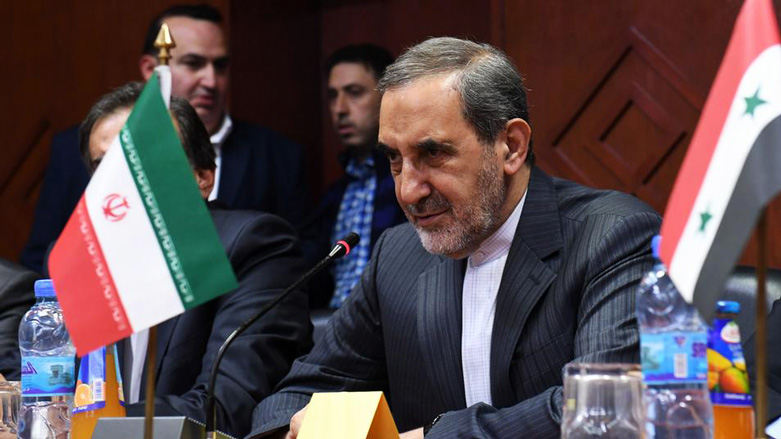Former Iranian Foreign Minister, Ali Akbar Velayati, with US education and medical background, contracts coronavirus

WASHINGTON DC (Kurdistan 24) – Iranian media have reported that Ali Akbar Velayati, former Iranian Foreign Minister and currently a senior adviser to Iran’s Supreme Leader Ayatollah Ali Khamenei, was “in quarantine” after catching the coronavirus.
The 75-year old Velayati is Iran’s longest-serving Foreign Minister. He was appointed Foreign Minister in December 1981, when Ayatollah Ruhollah Khomeini was Iran’s Supreme Leader and Khamenei was Iran’s president.
Velayati held that position for the next 16 years, until August 1997, when Mohammed Khatami, a relative moderate, was elected Iranian president. However, Khamenei had succeeded Khomeini, following the latter’s death in 1989, and Velayati was appointed Khamenei’s foreign policy advisor, after leaving the Foreign Ministry.
Thus, the highly-regarded magazine, Foreign Policy, described Velayati in 2018 as “the man who actually runs Iran’s foreign policy,” rather than the country’s official Foreign Minister, Mohammed Javad Zarif.
Velayati’s Medical Background: Infectious Diseases
That Velayati has caught the coronavirus probably relates to the fact that he is currently President of Masih Daneshvari Hospital in Tehran. Almost all of the considerable number of senior Iranian officials with the disease are receiving treatment there, as Radio Farda explained.
Velayati has a medical background. He studied pediatrics at Tehran University in the 1960s, and in the 1970s, he studied infectious diseases in the US, at Johns Hopkins University.
Velayati was jailed briefly as a young man during the rule of the Shah, Radio Farda explained. But the Shah’s government still helped him “to secure a fellowship in infectious diseases at Johns Hopkins University.”
The coronavirus is bringing to the fore Iranians of a certain generation—those who participated in the Iranian revolution and then rose within Iran’s new elite. Several of them share the experience of having first studied in America, before turning against it.
Last week, the 67 year-old Hossein Sheikholeslam, former Iranian ambassador to Syria, died of coronavirus. Sheikholeslam had been a student at the University of California, Berkley, when he returned to Iran to join the revolution and then played a prominent role in the 444-day siege of the US embassy there.
Read More: Iran’s former ambassador to Syria, involved in US hostage crisis, dies of coronavirus
Velayati is listed as a co-author in many articles published in professional medical journals, starting in the early 2000’s. Many of the articles deal with tuberculosis, such as, “Treatment monitoring and prevalence of drug resistance in tuberculosis patients in Tehran,” published in The International Journal of Tuberculosis and Lung Disease in 2000.
However, Velayati also helped write about other diseases, such as “Risk factors for human brucellosis in Iran: a case–control study,” in International Journal of Infectious Diseases in 2008, and “Cancers related to immunodeficiencies: update and perspectives,” in Frontiers in Immunology in 2016.
To the extent that much of Velayati’s published work in 2000 and afterwards focused on tuberculosis, a lung disease, he may have had a special interest in coronavirus, which also attacks the lungs.
Nonetheless, like other Iranian officials who first dismissed the significance of coronavirus—including the Deputy Health Minister, who actually gave a press conference, while sweating and coughing from the virus—Velayati also described it as unimportant.
In late February, Velayati told Iranian television that a coronavirus epidemic was no more of a threat than a flu outbreak, Radio Farda reported.
“Thank God, the Islamic Republic, its Ministry of Health and medical and educational centers have succeeded to defeat coronavirus," he affirmed. “Inshallah, the coronavirus' curve will soon flatten, and it will be totally contained.”
With China, the original epicenter of the virus, having brought the disease under control, Iran now is second only to Italy in the steadily rising number of cases that it is reporting and the resultant death toll.
Editing by John J. Catherine
